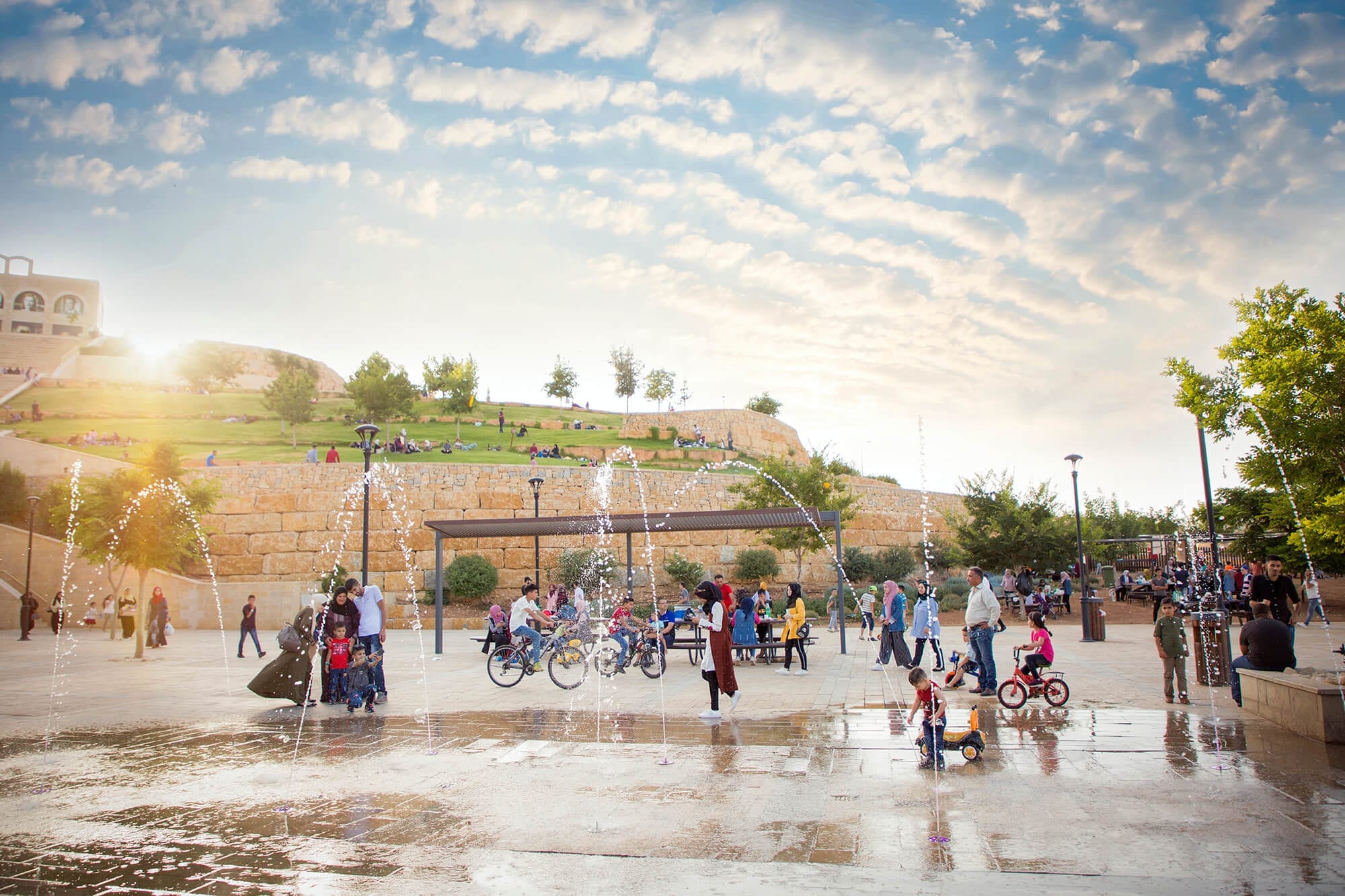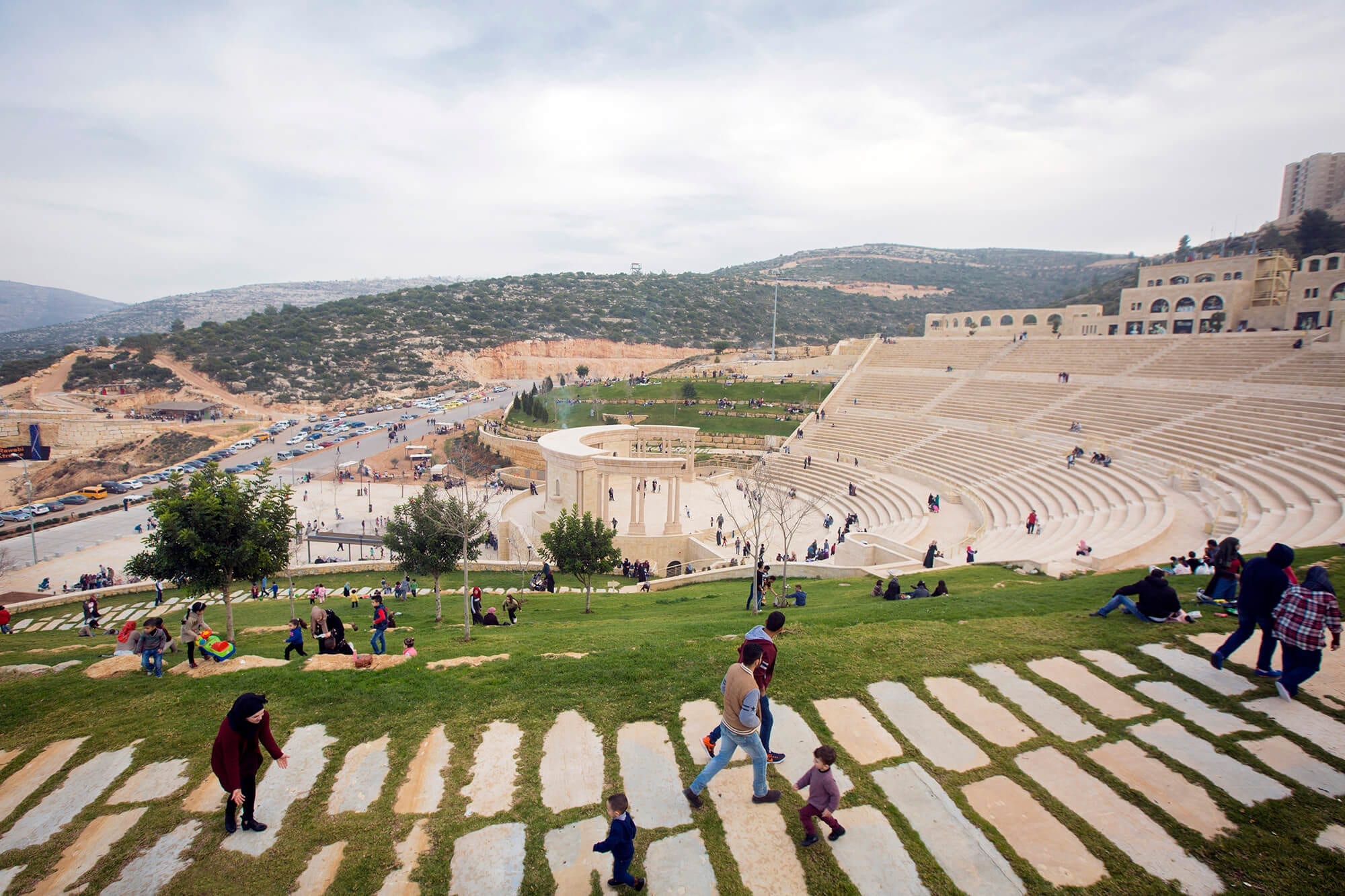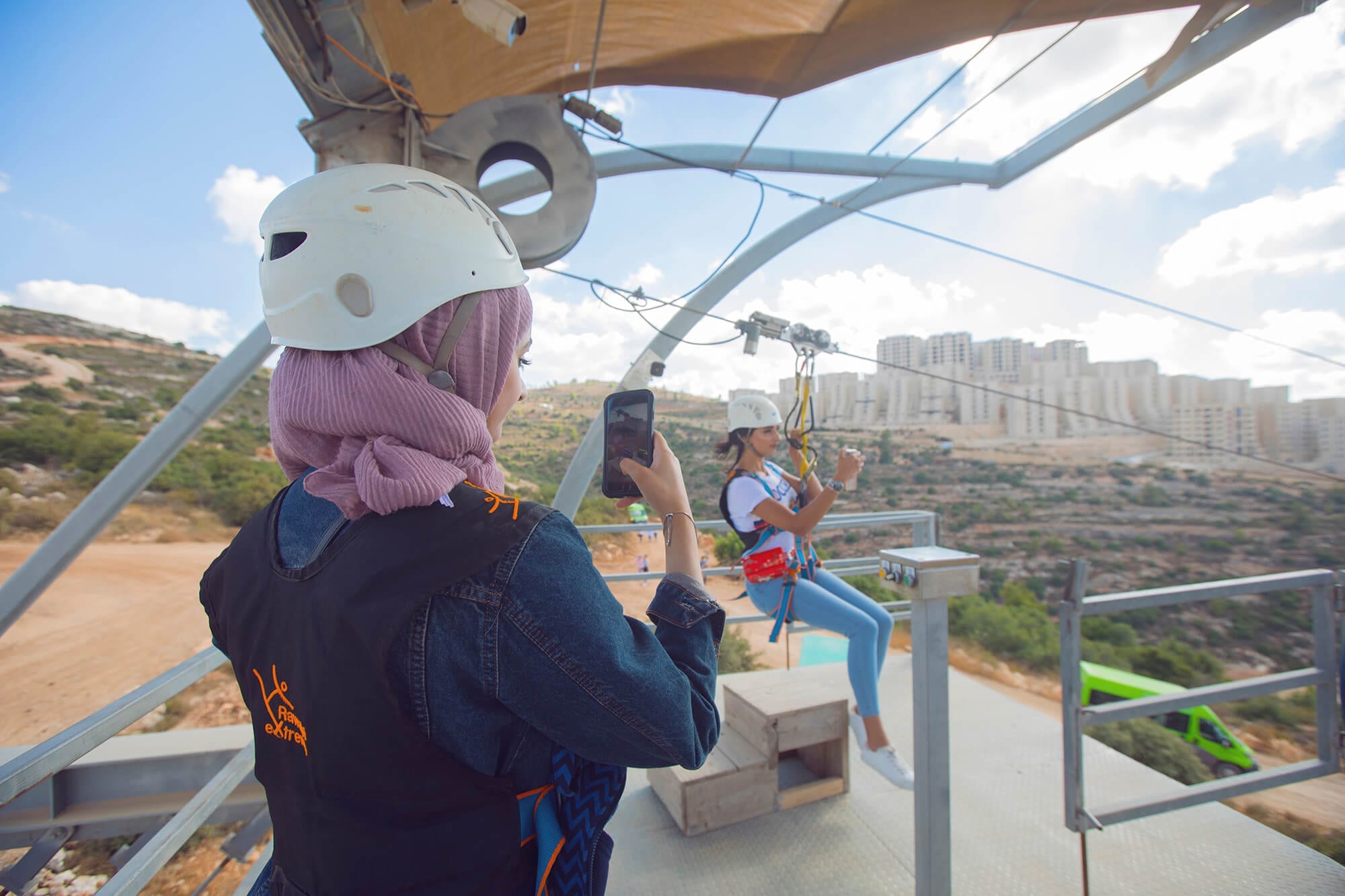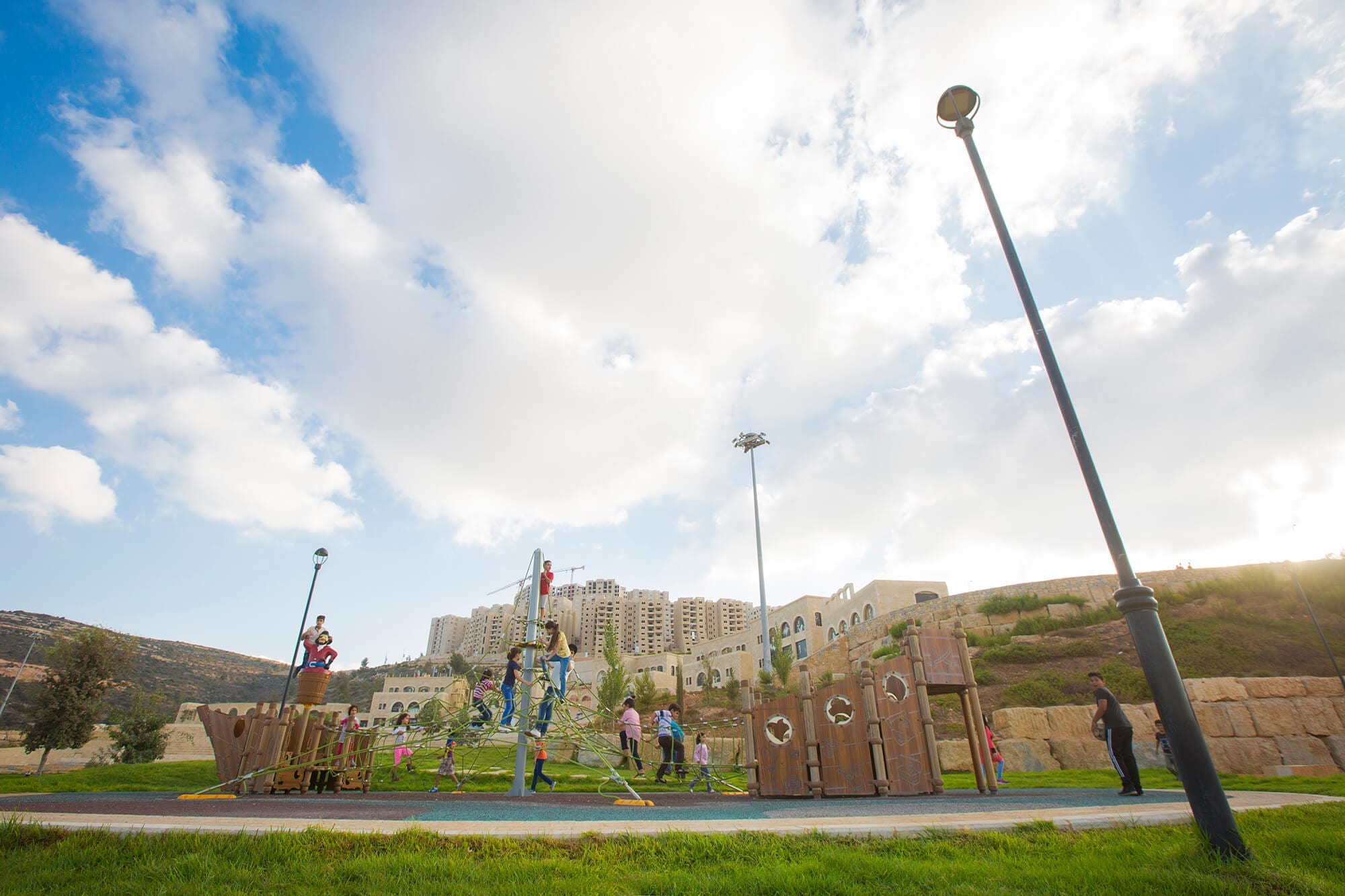Rawabi: The New Palestinian City
There is a time to rejoice, and a time to resist – Rawabi is doing both in defying all odds in building a new city from scratch on the green hills of Palestine.
On the road north from Ramallah, past Bir Zeit University, there is a new Palestinian city being built called Rawabi (which means “cluster of hills” in Arabic). Rawabi is the first Palestinian city to be built in the fragmented and occupied Palestinian territories. Considering the continuous obstacles confronting the Palestinians, making Rawabi a reality is an incredible feat that merits international recognition.
The story goes that during talks in Washington D.C. between the USA and Israel about the Iran sanctions in 2015, pro-Israeli lobbyists told Netanyahu that he needed to respond to concerns from Congress to President Obama about the denial of water access to Rawabi. Some 20 Congress and Senators had visited Rawabi. Israeli controls access to water throughout the entire West Bank, about 80% comes from the Israeli company Mekorot, the other 20% is from bottled water.
Rawabi straddles Areas A, B, and C of the dusty 1993 Oslo Accords. Area C is under full Israeli control. The water pipe connecting to Rawabi goes through a sliver of Area C. The Israelis delayed access for 18 months at a heavy cost to Palestinian-American entrepreneur Bashar al-Masri and his investors. Hundreds of buyers of new Rawabi apartments backed out and millions went to waste in waiting for the permits. Under pressure from Israeli lobbyists, Netanyahu acquiesced to the Rawabi water connection.

About 4,000 Palestinians now live in Rawabi city that is built of local limestone literally on a ‘group of hills’ somewhere in the middle of the West Bank. The Jewish settlement on an adjacent hilltop used to steal the Palestinian flags from the Rawabi welcome center. There are 10 flags flying high now, the largest in Palestine is hoisted with a strong cord inside the pole so that it would be very difficult to climb up and cut down. There are security cameras too and as Rawabi has become more a reality the Jewish settlers have less opportunity to harass and hinder progress.
Rawabi consists of 22 neighborhoods given Canaanite names – the Canaanites were the people that inhabited these rocky and verdant hills long before the advent of monotheistic religions. Four of the neighborhoods are completed with the latest technologies for communal trash collection, recycling and composting, rain harvesting on all the rooftops, LED lighting in all buildings and street lamps, and electric car charging point

Rawabi also boasts the largest amphitheater in the Arab countries, larger than any of the many Roman amphitheaters sprinkled around the Mediterranean, with a capacity to hold 15,000 people sitting, standing the audience reached over 22,000 people is the estimate for when Palestinian superstar Mohammed Assaf, hailing originally from Gaza, opened with a concert to celebrate Rawabi.
Across ‘wadina’ (our valley), there is an ‘Xtreme Sport’ hub for Bungee-jumping (only 16 meters high but still…) and a zip-line criss-crossing the hills; visitors can also reconnect with nature a little and go hiking. The roundabout entrance to Rawabi is called Douar al-Amal (the Circle of Hope) where a large rock is embedded diagonally, supposedly fallen from the sky like a meteorite, cracking the Earth and given life to new trees, nature and water sprouting forth in fountains. The symbolism is over the top but seems to fit the dire water scarcity of the eastern Mediterranean region.

Another box ticked for Rawabi city planners is the inter-faith dimension: the largest mosque in Palestine, after al-Aqsa Mosque (the third holiest site in Islam) in Jerusalem, is being completed near the Circle of Hope. Nearby is the only English school where students can get the prestigious Cambridge IGCSE training to pursue higher level university studies aboard at the renowned Bir Zeit University. And a church will be built overlooking ‘wadina’ – a young Muslim architect won the contest for her innovative and traditional design proposal. She is accompanied by a Muslim Palestinian-American fund-raiser who is supporting the construction of the new church. Inter-faith cooperation in action.
And there will be wine! A vineyard is growing local grapes and in a few years the cafes of the Q-center will serve wine for those who wish to indulge in another local flavor of Palestine. Q-center is named after Qatar that is backing the building efforts of the Bayti developers joint venture between Massar company and the Qatari government. Q-center resembles a smaller version of the new Beirut downtown and the new Abdali shopping strip mall in Amman also developed with Gulf financial support.
Back to Area C access rights: Executive Director of the Rawabi Foundation, Jack Nassar, says that the next challenge will be what quota of water the Israelis will permit Rawabi to buy. “It’s sad”, he says in reference to Netanyahu, “that one man could have the power to turn on and off the tap.” Meanwhile, Rawabi must renew its access permit every year to use the narrow road leading to the new Palestinian city. The Palestinians cannot fix the road, but the Israelis can destroy it whenever they like.
